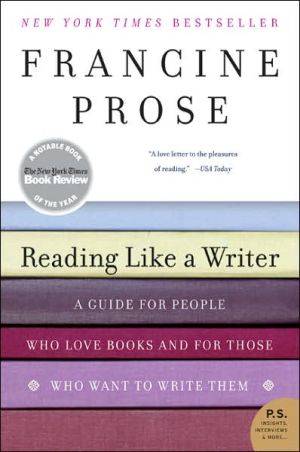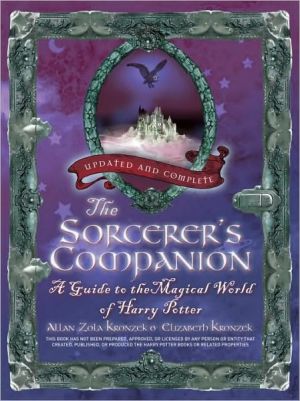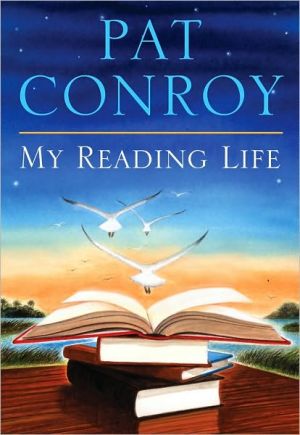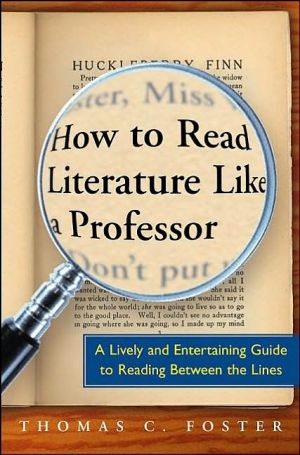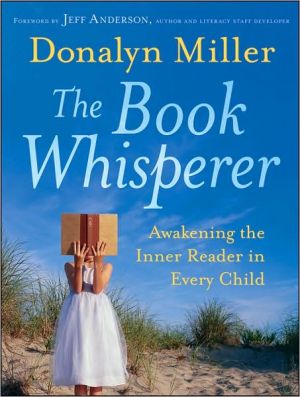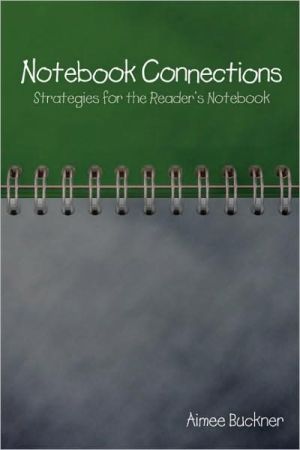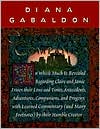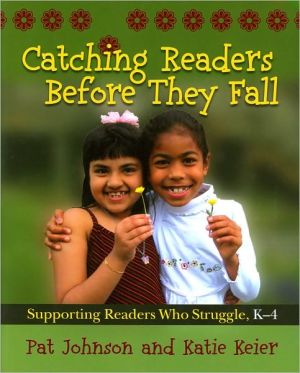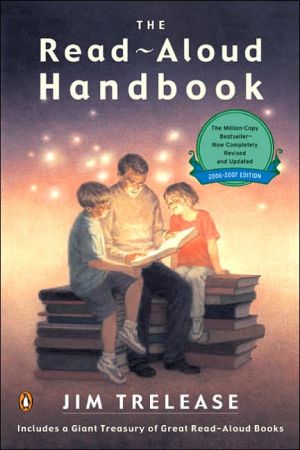Reading Like a Writer: A Guide for People Who Love Books and for Those Who Want to Write Them
Long before there were creative-writing workshops and degrees, how did aspiring writers learn to write? By reading the work of their predecessors and contemporaries, says Francine Prose.\ In Reading Like a Writer, Prose invites you to sit by her side and take a guided tour of the tools and the tricks of the masters. She reads the work of the very best writers—Dostoyevsky, Flaubert, Kafka, Austen, Dickens, Woolf, Chekhov—and discovers why their work has endured. She takes...
Search in google:
Long before there were creative-writing workshops and degrees, how did aspiring writers learn to write? By reading the work of their predecessors and contemporaries, says Francine Prose. In Reading Like a Writer, Prose invites you to sit by her side and take a guided tour of the tools and the tricks of the masters. She reads the work of the very best writers—Dostoyevsky, Flaubert, Kafka, Austen, Dickens, Woolf, Chekhov—and discovers why their work has endured. She takes pleasure in the long and magnificent sentences of Philip Roth and the breathtaking paragraphs of Isaac Babel; she is deeply moved by the brilliant characterization in George Eliot's Middlemarch. She looks to John Le Carré for a lesson in how to advance plot through dialogue, to Flannery O'Connor for the cunning use of the telling detail, and to James Joyce and Katherine Mansfield for clever examples of how to employ gesture to create character. She cautions readers to slow down and pay attention to words, the raw material out of which literature is crafted. Written with passion, humor, and wisdom, Reading Like a Writer will inspire readers to return to literature with a fresh eye and an eager heart.The New York Times - Emily BartonI don t know if any book about writing can tell us where novels come from or how they take shape in a writer s mind. Nevertheless, Reading Like a Writer should be greatly appreciated in and out of the classroom. Like the great works of fiction, it s a wise and voluble companion.
Reading Like a Writer\ A Guide for People Who Love Books and for Those Who Want to Write Them \ \ By Francine Prose \ HarperCollins Publishers, Inc.\ Copyright © 2006 Francine Prose\ All right reserved.\ ISBN: 0060777044 \ \ \ Chapter One\ Close Reading\ Can creative writing be taught?\ It's a reasonable question, but no matter how often I've been asked, I never know quite what to say. Because if what people mean is: Can the love of language be taught? Can a gift for storytelling be taught? then the answer is no. Which may be why the question is so often asked in a skeptical tone implying that, unlike the multiplication tables or the principles of auto mechanics, creativity can't be transmitted from teacher to student. Imagine Milton enrolling in a graduate program for help with Paradise Lost, or Kafka enduring the seminar in which his classmates inform him that, frankly, they just don't believe the part about the guy waking up one morning to find he's a giant bug.\ What confuses me is not the sensibleness of the question but the fact that it's being asked of a writer who has taught writing, on and off, for almost twenty years. What would it say about me, my students, and the hours we'd spent in the classroom if I said that any attempt to teach the writing of fiction was a complete waste of time? Probably, I should just go ahead and admit that I've beencommitting criminal fraud.\ Instead I answer by recalling my own most valuable experience, not as a teacher but as a student in one of the few fiction workshops I took. This was in the 1970s, during my brief career as a graduate student in medieval English literature, when I was allowed the indulgence of taking one fiction class. Its generous teacher showed me, among other things, how to line edit my work. For any writer, the ability to look at a sentence and see what's superfluous, what can be altered, revised, expanded, or especially cut is essential. It's satisfying to see that sentence shrink, snap into place, and ultimately emerge in a more polished form: clear, economical, sharp.\ Meanwhile, my classmates were providing me with my first real audience. In that prehistory, before mass photocopying enabled students to distribute manuscripts in advance, we read our work aloud. That year, I was beginning what would become my first novel. And what made an important difference to me was the attention I felt in the room as the others listened. I was encouraged by their eagerness to hear more.\ That's the experience I describe, the answer I give people who ask about teaching creative writing: A workshop can be useful. A good teacher can show you how to edit your work. The right class can form the basis of a community that will help and sustain you.\ But that class, as helpful as it was, was not where I learned to write.\ Like most, maybe all, writers, I learned to write by writing and, by example, from books.\ Long before the idea of a writer's conference was a glimmer in anyone's eye, writers learned by reading the work of their predecessors. They studied meter with Ovid, plot construction with Homer, comedy with Aristophanes; they honed their prose style by absorbing the lucid sentences of Montaigne and Samuel Johnson. And who could have asked for better teachers: generous, uncritical, blessed with wisdom and genius, as endlessly forgiving as only the dead can be?\ Though writers have learned from the masters in a formal, methodical way--Harry Crews has described taking apart a Graham Greene novel to see how many chapters it contained, how much time it covered, how Greene handled pacing, tone, and point of view--the truth is this sort of education more often involves a kind of osmosis. After I've written an essay in which I've quoted at length from great writers, so that I've had to copy out long passages of their work, I've noticed that my own work becomes, however briefly, just a little more fluent.\ In the ongoing process of becoming a writer, I read and reread the authors I most loved. I read for pleasure, first, but also more analytically, conscious of style, of diction, of how sentences were formed and information was being conveyed, how the writer was structuring a plot, creating characters, employing detail and dialogue. And as I wrote I discovered that writing, like reading, was done one word at a time, one punctuation mark at a time. It required what a friend calls "putting every word on trial for its life": changing an adjective, cutting a phrase, removing a comma, and putting the comma back in.\ I read closely, word by word, sentence by sentence, pondering each deceptively minor decision that the writer had made. And though it's impossible to recall every source of inspiration and instruction, I can remember the novels and stories that seemed to me revelations: wells of beauty and pleasure that were also textbooks, private lessons in the art of fiction.\ This book is intended partly as a response to that unavoidable question about how writers learn to do something that cannot be taught. What writers know is that, ultimately, we learn to write by practice, hard work, by repeated trial and error, success and failure, and from the books we admire. And so the book that follows represents an effort to recall my own education as a novelist and to help the passionate reader and would-be writer understand how a writer reads.\ When I was a high school junior, our English teacher assigned us to write a term paper on the theme of blindness in Oedipus Rex and King Lear. We were supposed to go through the two tragedies and circle every reference to eyes, light, darkness, and vision, then draw some conclusion on which we would base our final essay.\ It all seemed so dull, so mechanical. We felt we were way beyond it. Without this tedious, time-consuming exercise, all of us knew that blindness played a starring role in both dramas.\ Still, we liked our English teacher, we wanted to please him. And searching for every . . .\ \ Continues... \ \ \ \ Excerpted from Reading Like a Writer by Francine Prose Copyright © 2006 by Francine Prose. Excerpted by permission.\ All rights reserved. No part of this excerpt may be reproduced or reprinted without permission in writing from the publisher.\ Excerpts are provided by Dial-A-Book Inc. solely for the personal use of visitors to this web site. \ \
\ From Barnes & NobleCenturies before college creative writing programs, would-be authors learned their craft by reading. Francine Prose, a talented wordsmith herself, utilizes this time-honored approach in this inviting, practical guide. Reading Like a Writer performs a double service by making us both better writers and more attentive readers. Her refreshingly egalitarian choice of exemplars demonstrates that writing skills are not found only in elite literary circles. One of the best recent writing guides we have seen.\ \ \ \ \ Los Angeles Times"a jewel of a companion…engrossing...and...daringly insightful."\ \ \ Kansas City Star"Sensible, valuable and highly readable, Reading Like a Writer deserves perusal — both in and out of the classroom."\ \ \ \ \ Time Out New York"Celebrates the pleasures of close reading and explores the power of well-wrought language…refreshing"\ \ \ \ \ Washington Post Book World"Witty...Insightful."\ \ \ \ \ New York Times Book Review"Prose’s little guide will motivate ‘people who love books’…Like the great works of fiction, it’s a wise and voluble companion."\ \ \ \ \ San Francisco Chronicle"The passages are…subtle and brilliant in their capture of human complexity…Prose is…a skilled…analyst of what makes them so."\ \ \ \ \ National Public Radio"An absolutely necessary addition to the personal library of anyone who is a writer or dreams of writing."\ \ \ \ \ More magazine“Prose knows when to be funny, how to wield examples, and when to stop.”\ \ \ \ \ Capital Times"Readable and illuminating…few…advice volumes offer as much insight into writing as you will find in Francine Prose’s latest book"\ \ \ \ \ Washington Times"Reading Like A Writer is different from the rest of the pack…[Prose’s] wise book serves as an ispirational reminder."\ \ \ \ \ Fort Lauderdale Sun Sentinel"Makes a case for the rewards of reading."\ \ \ \ \ MoreMagazine"Prose knows when to be funny, how to wield examples, and when to stop."\ \ \ \ \ Emily BartonI don’t know if any book about writing can tell us where novels come from — or how they take shape in a writer’s mind. Nevertheless, Reading Like a Writer should be greatly appreciated in and out of the classroom. Like the great works of fiction, it’s a wise and voluble companion.\ — The New York Times\ \ \ \ \ Publishers WeeklyThe trick to writing, Prose writes, is reading-carefully, deliberately and slowly. While this might seem like a no-brainer, Prose (Blue Angel; A Changed Man) masterfully meditates on how quality reading informs great writing, which will warm the cold, jaded hearts of even the most frustrated, unappreciated and unpublished writers. Chapters treat the nuts and bolts of writing (words, sentences, paragraphs) as well as issues of craft (narration, character, dialogue), all of which Prose discusses using story or novel excerpts. This is where the book truly shines; Prose is remarkably egalitarian in choosing exemplars of fiction: David Gates, Denis Johnson, John le Carr and ZZ Packer, for instance, are considered as seriously as Chekhov, Melville, Flaubert or Babel. Prose insists that "literature not only breaks the rules, but makes us realize that there are none," and urges writers to re-read the classics (Chekhov, especially) and view "reading as something that might move or delight you." Prose's guide to reading and writing belongs on every writer's bookshelf alongside E.M. Forster's Aspects of the Novel. (Aug.) Copyright 2006 Reed Business Information.\ \ \ \ \ Publishers WeeklySavard has a pleasant voice, a good vocal range and the important ability to emphasize for clarity and drama. She's especially good at the long and very varied quotes Prose has selected to illustrate the elements of "close reading," i.e., paying careful attention to words, sentences, paragraphs, narration, character, dialogue, details and gesture (her chapter headings). Prose has taught writing classes for more than 20 years and published 14 books. To be a good writer-or a good reader-she argues, you must develop the ability to focus on language and explore line by line how the best writers use each element of language to create unique and powerful people and stories. She pulls out words and phrases from various authors to show us, for example, precisely how Flannery O'Connor creates "the literary equivalent of a fireworks display" while Alice Munro "writes with the simplicity and beauty of a Shaker box." This is a an excellent listen that belongs in any reader's or writer's library next to Strunk and White's The Elements of Style. Simultaneous release with the Harper Perennial paperback (Reviews, Apr. 24, 2006). (May)\ Copyright 2007 Reed Business Information\ \ \ \ \ Library JournalProse, known for her novels (e.g., Blue Angel), as well as her nonfiction (e.g., Caravaggio: Painter of Miracles), presents a short volume that serves as literary criticism, as a writing guide, and as an ode to the value of careful reading. Prose devotes a chapter each to eight elements of writing: words, sentences, paragraphs, narration, character, dialog, details, and gesture. These chapters are framed by an opening piece that urges close reading as most productive for writers; a chapter devoted to Chekhov, particularly his short stories, as translated by Constance Garnett; and a closing chapter, "Reading for Courage." Throughout, Prose focuses on what makes great fiction, mixing personal narrative with plentiful quotations from her favored writers, including both the big names generally encountered in such books (Joyce, Woolf, Mansfield, Flannery O'Connor, Melville, Austen, Paul Bowles, and Raymond Carver) and writers like Tatyana Tolstaya, Paula Fox, and Rex Stout. As the title suggests, this book is likely to find its audience with readers who are also writers or who long to be. Those who simply "love books" but do not have interest in the excruciating process behind their creation will not find the same value here. As a result, this book may have a narrow audience but one that will find much to enjoy. Prose also includes a suggested reading list. Recommended for academic and large public libraries. Stacey Brownlie, Lititz P.L., PA Copyright 2006 Reed Business Information.\ \ \ \ \ School Library JournalAdult/High School-Life is precious, and much of that preciousness lies in the details: the sights, the sounds, the scents we too often ignore in our busy lives. Prose makes a superb application of that concept for readers of fiction. To know how the great writers create their magic, one needs to engage in a close reading of the masters, for that is precisely what successful writers have done for thousands of years. College programs in creative writing and summer workshops serve a purpose, but they can never replace a careful reading of the likes of Austen, Dostoyevsky, Flaubert, Kafka, Salinger, Tolstoy, and Woolf. In this excellent guide, Prose explains exactly what she means by "close reading," drawing attention to the brick and mortar of outstanding narratives: words, sentences, paragraphs, character, dialogue, details, and more. In the process, she does no less than escort readers to a heightened level of appreciation of great literature. Many will want to go to the shelves to read again, or for the first time, the books she discusses. And to aid them, she thoughtfully adds a list at the end: "Books to Be Read Immediately."-Robert Saunderson, Berkeley Public Library, CA Copyright 2006 Reed Business Information.\ \
